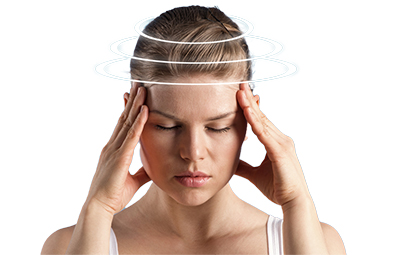Ménière’s Disease

Understanding Ménière’s Disease:
Ménière’s disease is a chronic disorder that affects the inner ear, leading to various distressing symptoms. It is characterized by recurring episodes of vertigo (a sensation of spinning or dizziness), fluctuating hearing loss, a ringing sensation in the ears (tinnitus), and a feeling of fullness or pressure in the affected ear.
Symptoms and Impact:
The specific symptoms and the frequency of episodes can vary from person to person, but common signs of Ménière’s disease include:
1. Vertigo: Episodes of spinning or dizziness can be incapacitating, often lasting for several hours and causing imbalance, disorientation, and nausea.
2. Hearing Loss: Gradual or sudden hearing loss in one or both ears is a hallmark symptom. In the early stages, hearing loss may fade between episodes, but it can eventually become permanent.
3. Tinnitus: Many individuals with Ménière’s experience a constant or intermittent ringing, buzzing, or roaring sound in the affected ear. This tinnitus can be intrusive and bothersome.
4. Ear Fullness and Pressure: A sensation of fullness, pressure or discomfort is commonly felt in the ear affected by Ménière’s disease, often leading to a feeling of blocked or muffled hearing.
Diagnosis and Treatment Options:
If you suspect you have Ménière’s disease, seeking professional consultation is essential. Dr. Seejo George will conduct a thorough examination, which may include:
1. Medical History: A detailed conversation about your symptoms, their frequency, and impact on your daily life helps Dr. Seejo George understand your individual case.
2. Hearing and Balance Tests: Audiometric evaluations, vestibular function tests, and imaging studies may be conducted to assess your hearing abilities and to evaluate the balance function of your inner ear.
Treatment approaches for Ménière’s disease focus on managing symptoms and improving quality of life. Dr. Seejo George may recommend:
1. Medication: Medications like diuretics, anti-nausea drugs, and corticosteroids may be prescribed to relieve symptoms and reduce the frequency and severity of vertigo attacks.
2. Lifestyle Changes: Dietary adjustments, such as reducing salt and avoiding caffeine and alcohol, may help manage symptoms. Stress reduction techniques and regular exercise can also be beneficial.
3. Hearing Aids: If hearing loss is present, hearing aids or assistive devices may improve communication abilities and minimize the impact on daily life.
4. Vestibular Rehabilitation Therapy (VRT): VRT is a specialized exercise program that helps retrain the brain to compensate for inner ear imbalances. It can improve balance and reduce symptoms of dizziness.
5. Invasive Treatment Options: In rare cases where medications and non-invasive treatments are ineffective, surgical procedures, such as endolymphatic sac decompression or vestibular nerve section, may be considered.
Dr. Seejo George’s Expertise and Support:
Dr. Seejo George understands the complexities of Ménière’s disease and offers individualized care to help patients manage their symptoms and improve their overall well-being. With his extensive knowledge and experience in otolaryngology, Dr. Seejo George provides compassionate support and tailored treatment options to address the specific needs of each patient.
If you're experiencing symptoms of Ménière’s disease or have been diagnosed with the condition, contact our clinic to schedule a consultation with Dr. Seejo George. He will work closely with you to develop a comprehensive treatment plan that aims to alleviate symptoms, improve your quality of life, and manage the impact of this chronic condition.
Take the first step towards regaining control over your life with Dr. Seejo George and his expert team by your side. Contact us today to schedule your consultation.






